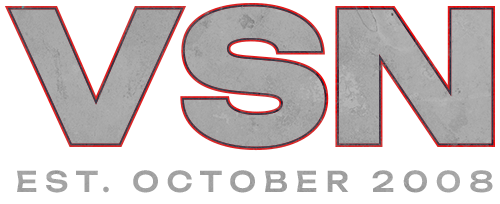-
We have just launched a new VSN Amazon Store. This new store will allow you to order games (including PC downloads) and anything else you want from Amazon and help VSN out at the same time! You get the exact same deals and pre-order bonuses through our store front as you do from Amazon so please bookmark this link and use it when you are shopping at Amazon.com - [URL="http://astore.amazon.com/vsngaming-20/"][COLOR="#0000FF"][U]VSN Amazon Store[/U][/COLOR][/URL] Here are some direct links to pre-order the major upcoming titles- [B][SIZE=4][COLOR="#0000FF"]PlayStation 4[/COLOR][/SIZE][/B] [URL="http://astore.amazon.com/vsngaming-20/detail/B00BGA9WK2"]PlayStation 4 500GB Console[/URL] [URL="http://astore.amazon.com/vsngaming-20/detail/B00HVBPRUO"]PlayStation 4 Gold Wireless Headset[/URL] [URL="http://astore.amazon.com/vsngaming-20/detail/B00BGA9X9W"]PlayStation 4 DualShock 4 Wireless Controller[/URL] [URL="http://astore.amazon.com/vsngaming-20/detail/B00BGAA3S2"]PlayStation 4 Camera[/URL] [URL="http://astore.amazon.com/vsngaming-20/detail/B00DCBDNW6"]Final Fantasy XIV: A REALM REBORN[/URL] - April 14th [URL="http://astore.amazon.com/vsngaming-20/detail/B00J128FPA"]Final Fantasy XIV: A REALM REBORN Collectors Edition[/URL] - April 14th [URL="http://astore.amazon.com/vsngaming-20/detail/B00IMVRVC4"]Trials Fusion[/URL] - April 15th [URL="http://astore.amazon.com/vsngaming-20/detail/B00GG4BBUM"]MLB 14: The Show[/URL] - May 6th [URL="http://astore.amazon.com/vsngaming-20/detail/B00DHF39KS"]Wolfenstein: The New Order[/URL] - May 20th [URL="http://astore.amazon.com/vsngaming-20/detail/B00BI83EVU"]Watch Dogs[/URL] - May 27th [URL="http://astore.amazon.com/vsngaming-20/detail/B00DYAQHTQ"]Watch Dogs Limited Edition[/URL] - May 27th [URL="http://astore.amazon.com/vsngaming-20/detail/B00I0574EW"]Murdered Soul Suspect[/URL] - June 3rd [URL="http://astore.amazon.com/vsngaming-20/detail/B00DHF39HQ"]The Elder Scrolls Online[/URL] - June 30th [URL="http://astore.amazon.com/vsngaming-20/detail/B00BGA9ZZ4"]Drive Club[/URL] - September 30th [URL="http://astore.amazon.com/vsngaming-20/detail/B00GZ1GUSY"]Tomb Raider Definitive Edition[/URL] [URL="http://astore.amazon.com/vsngaming-20/detail/B00H5V9S6E"]Rayman Legends - Standard Edition[/URL] [URL="http://astore.amazon.com/vsngaming-20/detail/B00C27SCC2"]Thief[/URL] [URL="http://astore.amazon.com/vsngaming-20/detail/B00HD4R5YU"]Metal Gear Solid V: Ground Zeroes Standard Edition[/URL] [URL="http://astore.amazon.com/vsngaming-20/detail/B00BGAA0SU"]inFAMOUS Second Son Limited Edition[/URL] [URL="http://astore.amazon.com/vsngaming-20/detail/B00FYIXMHQ"]inFAMOUS Second Son Collectors Edition[/URL] [URL="http://astore.amazon.com/vsngaming-20/detail/B00D2ZK1IG"]Dying Light[/URL] [B][SIZE=4][COLOR="#0000FF"]PlayStation 3[/COLOR][/SIZE][/B] [URL="http://astore.amazon.com/vsngaming-20/detail/B00B0JALUE"]PlayStation 3 500GB Console[/URL] [URL="http://astore.amazon.com/vsngaming-20/detail/B00AEX81SG"]PlayStation 3 250GB Console[/URL] [URL="http://astore.amazon.com/vsngaming-20/detail/B00GY4OAIE"]LEGO The Hobbit[/URL] - April 8th [URL="http://astore.amazon.com/vsngaming-20/detail/B00I9UVY30"]FIFA 2014 World Cup Brazil[/URL] - April 15th [URL="http://astore.amazon.com/vsngaming-20/detail/B00ICWO2ZW"]Darksiders Collection[/URL] - April 29th [URL="http://astore.amazon.com/vsngaming-20/detail/B00ICWO2P2"]Red Faction Collection[/URL] - April 29th [URL="http://astore.amazon.com/vsngaming-20/detail/B00HQY8LRM"]Rambo The Video Game[/URL] - April 29th [URL="http://astore.amazon.com/vsngaming-20/detail/B00FRESXSA"]The Amazing Spider-Man 2[/URL] - April 29th [URL="http://astore.amazon.com/vsngaming-20/detail/B00CPKUV98"]Wolfenstein: The New Order[/URL] - May 20th [URL="http://astore.amazon.com/vsngaming-20/detail/B00J6DLPLK"]Drakengard 3[/URL] - May 20th [URL="http://astore.amazon.com/vsngaming-20/detail/B00BGHUS58"]Watch Dogs[/URL] - May 27th [URL="http://astore.amazon.com/vsngaming-20/detail/B00DYAQHZ0"]Watch Dogs Collectors Edition[/URL] - May 27th [URL="http://astore.amazon.com/vsngaming-20/detail/B00BG6ZHK0"]Murdered: Soul Suspect[/URL] - June 3rd [URL="http://astore.amazon.com/vsngaming-20/detail/B00IGHP28Y"]Transformers Rise of The Dark Spark[/URL] - June 24th [URL="http://astore.amazon.com/vsngaming-20/detail/B00DNGQTFI"]Dragon Ball Z: Battle of Z[/URL] [URL="http://astore.amazon.com/vsngaming-20/detail/B00H4BBTCQ"]Tomb Raider - GOTY Edition[/URL] [URL="http://astore.amazon.com/vsngaming-20/detail/B00HNYWFMC"]Far Cry Compilation [/URL] [URL="http://astore.amazon.com/vsngaming-20/detail/B00946FSIA"]Lightning Returns: Final Fantasy XIII[/URL] [URL="http://astore.amazon.com/vsngaming-20/detail/B00HQY8LRM"]Rambo The Video Game[/URL] [URL="http://astore.amazon.com/vsngaming-20/detail/B00FQFFPZO"]NASCAR '14[/URL] [URL="http://astore.amazon.com/vsngaming-20/detail/B00DFT92MU"]Thief[/URL] [URL="http://astore.amazon.com/vsngaming-20/detail/B0088MVP3S"]Castlevania: Lords of Shadow 2[/URL] [URL="http://astore.amazon.com/vsngaming-20/detail/B00ECOBFCC"]The LEGO Movie Videogame[/URL] [URL="http://astore.amazon.com/vsngaming-20/detail/B006IOAHPK"]South Park: The Stick of Truth[/URL] [URL="http://astore.amazon.com/vsngaming-20/detail/B00FDQQD52"]South Park: The Stick of Truth Grand Wizard Edition [/URL] [URL="http://astore.amazon.com/vsngaming-20/detail/B00F6YD2AK"]Dark Souls II Black Armor Edition[/URL] [URL="http://astore.amazon.com/vsngaming-20/detail/B00F6YD2FK"]Dark Souls II Collectors Edition[/URL] [URL="http://astore.amazon.com/vsngaming-20/detail/B00GJSUUC0"]Metal Gear Solid V: Ground Zeroes Standard Edition[/URL] [URL="http://astore.amazon.com/vsngaming-20/detail/B00E44EZYA"]Ultra Street Fighter IV[/URL] [URL="http://astore.amazon.com/vsngaming-20/detail/B00D2ZK2O4"]Dying Light[/URL] [B][SIZE=4][COLOR="#0000FF"]Xbox One[/COLOR][/SIZE][/B] [URL="http://astore.amazon.com/vsngaming-20/detail/B00CMQTVUA"]Xbox One Console[/URL] [URL="http://astore.amazon.com/vsngaming-20/detail/B00MCLFZ1Y"]Xbox One Console Madden 15 Bundle[/URL] [URL="http://astore.amazon.com/vsngaming-20/detail/B00IIHU44E"]Xbox One Console Titanfall Bundle[/URL] [URL="http://astore.amazon.com/vsngaming-20/detail/B00HVPFGD8"]Titanfall Limited Edition Controller[/URL] [URL="http://astore.amazon.com/vsngaming-20/detail/B00CMQTUSS"]Xbox One Wireless Controller[/URL] [URL="http://astore.amazon.com/vsngaming-20/detail/B00IAVDQCK"]Xbox One Stereo Headset[/URL] [URL="http://astore.amazon.com/vsngaming-20/detail/B00IAVDOS6"]Xbox One Stereo Headset Adapter[/URL] [URL="http://astore.amazon.com/vsngaming-20/detail/B00GY4OB8S"]LEGO The Hobbit[/URL] - April 8th [URL="http://astore.amazon.com/vsngaming-20/detail/B00CMQTUCE"]KINECT Sports: Rivals[/URL] - April 8th [URL="http://astore.amazon.com/vsngaming-20/detail/B00IMVRVA6"]Trials Fusion[/URL] - April 15h [URL="http://astore.amazon.com/vsngaming-20/detail/B00FRESTZW"]The Amazing Spider-Man 2[/URL] - April 29th [URL="http://astore.amazon.com/vsngaming-20/detail/B00DHF39L2"]Wolfenstein: The New Order[/URL] - May 20th [URL="http://astore.amazon.com/vsngaming-20/detail/B00CX8VY4S"]Watch Dogs[/URL] - May 27th [URL="http://astore.amazon.com/vsngaming-20/detail/B00DYAQI0E"]Watch Dogs Limited Edition[/URL] - May 27th [URL="http://astore.amazon.com/vsngaming-20/detail/B00I0574CO"]Murdered Soul Suspect[/URL] - June 3rd [URL="http://astore.amazon.com/vsngaming-20/detail/B00IGH2HKU"]Transformers Rise of The Dark Spark[/URL] - June 24th [URL="http://astore.amazon.com/vsngaming-20/detail/B00DHF39EO"]The Elder Scrolls Online[/URL] - June 30th [URL="http://astore.amazon.com/vsngaming-20/detail/B00GZ1GUNO"]Tomb Raider Definitive Edition[/URL] [URL="http://astore.amazon.com/vsngaming-20/detail/B00DBCAS7E"]Zoo Tycoon[/URL] [URL="http://astore.amazon.com/vsngaming-20/detail/B00H5V9SLE"]Rayman Legends - Standard Edition[/URL] [URL="http://astore.amazon.com/vsngaming-20/detail/B00CYNTHA0"]Thief[/URL] [URL="http://astore.amazon.com/vsngaming-20/detail/B00DB9JYFY"]Titanfall[/URL] [URL="http://astore.amazon.com/vsngaming-20/detail/B00G2HSX86"]Titanfall Collectors Edition[/URL] [URL="http://astore.amazon.com/vsngaming-20/detail/B00HD4R5WC"]Metal Gear Solid V: Ground Zeroes Standard Edition[/URL] [URL="http://astore.amazon.com/vsngaming-20/detail/B00D2ZK2MQ"]Dying Light[/URL] [B][SIZE=4][COLOR="#0000FF"]Xbox 360[/COLOR][/SIZE][/B] [URL="http://astore.amazon.com/vsngaming-20/detail/B00FATRKOK"]Xbox 360 250GB Holiday Value Console[/URL] [URL="http://astore.amazon.com/vsngaming-20/detail/B00GZ9ESEE"]Xbox 360 250GB Console w/Halo 4, Darksiders II, Tomb Raider and Batman: Arkham City[/URL] [URL="http://astore.amazon.com/vsngaming-20/detail/B003ZSP0WW"]Xbox 360 Wireless Controller[/URL] [URL="http://astore.amazon.com/vsngaming-20/detail/B00DC9SWWE"]Titanfall[/URL] - April 8th [URL="http://astore.amazon.com/vsngaming-20/detail/B00G2HSWZU"]Titanfall Collectors Edition[/URL] - April 8th [URL="http://astore.amazon.com/vsngaming-20/detail/B00GY4OBB0"]LEGO The Hobbit[/URL] - April 8th [URL="http://astore.amazon.com/vsngaming-20/detail/B00I9UVY7G"]FIFA 2014 World Cup Brazil[/URL] - April 15th [URL="http://astore.amazon.com/vsngaming-20/detail/B00ICWO2G6"]Darksiders Collection[/URL] - April 29th [URL="http://astore.amazon.com/vsngaming-20/detail/B00FRESY6G"]The Amazing Spider-Man 2[/URL] - April 29th [URL="http://astore.amazon.com/vsngaming-20/detail/B00CPKUV7K"]Wolfenstein: The New Order[/URL] - May 20th [URL="http://astore.amazon.com/vsngaming-20/detail/B00BGD6LMG"]Watch Dogs[/URL] - May 27th [URL="http://astore.amazon.com/vsngaming-20/detail/B00DYAQHNC"]Watch Dogs Limited Edition[/URL] - May 27th [URL="http://astore.amazon.com/vsngaming-20/detail/B00BG6ZHL4"]Murdered: Soul Suspect[/URL] - June 3rd [URL="http://astore.amazon.com/vsngaming-20/detail/B00IGHY7LC"]Transformers Rise of The Dark Spark[/URL] - June 24th [URL="http://astore.amazon.com/vsngaming-20/detail/B00DNGQQUQ"]Dragon Ball Z: Battle of Z[/URL] [URL="http://astore.amazon.com/vsngaming-20/detail/B00H4BBVZQ"]Tomb Raider - GOTY Edition[/URL] [URL="http://astore.amazon.com/vsngaming-20/detail/B00DBCAT3W"]Fable Anniversary[/URL] [URL="http://astore.amazon.com/vsngaming-20/detail/B00946FSJ4"]Lightning Returns: Final Fantasy XIII[/URL] [URL="http://astore.amazon.com/vsngaming-20/detail/B00FQFFQ2Q"]NASCAR '14[/URL] [URL="http://astore.amazon.com/vsngaming-20/detail/B00DFT92EI"]Thief[/URL] [URL="http://astore.amazon.com/vsngaming-20/detail/B0088MVP2Y"]Castlevania: Lords of Shadow 2[/URL] [URL="http://astore.amazon.com/vsngaming-20/detail/B00ECOBFA4"]The LEGO Movie Videogame[/URL] [URL="http://astore.amazon.com/vsngaming-20/detail/B006IOAHTQ"]South Park: The Stick of Truth[/URL] [URL="http://astore.amazon.com/vsngaming-20/detail/B00FDQQD6Q"]South Park: The Stick of Truth Grand Wizard Edition [/URL] [URL="http://astore.amazon.com/vsngaming-20/detail/B00F6YD26Y"]Dark Souls II Black Armor Edition[/URL] [URL="http://astore.amazon.com/vsngaming-20/detail/B00F6YD27I"]Dark Souls II Collectors Edition[/URL] [URL="http://astore.amazon.com/vsngaming-20/detail/B00GJSUXLS"]Metal Gear Solid V: Ground Zeroes Standard Edition[/URL] [URL="http://astore.amazon.com/vsngaming-20/detail/B00E44EZPE"]Ultra Street Fighter IV[/URL] [URL="http://astore.amazon.com/vsngaming-20/detail/B00D2ZK2RQ"]Dying Light[/URL] [B][SIZE=4][COLOR="#0000FF"]Wii U[/COLOR][/SIZE][/B] [URL="http://astore.amazon.com/vsngaming-20/detail/B00GY4OAM0"]LEGO The Hobbit[/URL] - April 22nd [URL="http://astore.amazon.com/vsngaming-20/detail/B00FRESQKU"]The Amazing Spider-man 2[/URL] - April 29th [URL="http://astore.amazon.com/vsngaming-20/detail/B00DC7G2W8"]Mario Kart 8[/URL] - May 30th [URL="http://astore.amazon.com/vsngaming-20/detail/B00IGH1LJ8"]Transformers Rise of the Dark Spark[/URL] - June 24th [URL="http://astore.amazon.com/vsngaming-20/detail/B00DC7O77A"]Donkey Kong Country Tropical Freeze[/URL] [URL="http://astore.amazon.com/vsngaming-20/detail/B00ECOAX34"]The LEGO Movie Videogame[/URL]
[ALL] H1Z1
- Thread starter Handleit_44
- Start date

